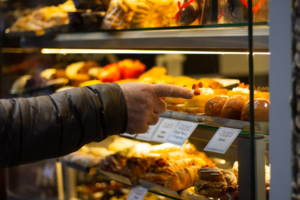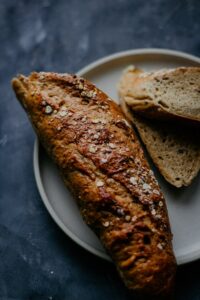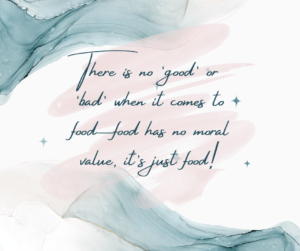
How do you choose what to eat?!
TW – Trigger Warning – this post contains discussion about food and anorexic thought processes and may be triggering to people to some people. Please exercise causing if you choose to continue reading.
Many of you will know, I recently fractured my jaw and this has led to a severely restricted diet as I had metal work holding my teeth tightly shut to pull my fragmented mandible into correct alignment. At best during the last 9 weeks I’ve been able to get a teaspoon into my mouth and manage smooth soup, at worst, it’s been smoothies and milkshakes through a straw. Unfortunately, this has led to weight loss and the restriction has triggered some familiar thoughts linked to previous experience of anorexia.
2 days ago, I was given fantastic news, I can now open my mouth fully and I’m able to chew food again! I’ll be having the metal work removed within a few weeks so the end of the ordeal is finally in sight!

The hospital has a Costa and I’d been dreaming of enjoying cake from there for weeks! But…standing in front of the array of cakes I simply could not decide, I realised, I had no idea how to choose! The part of my mind that was looking after my fractured jaw needed to choose something soft and easy to chew (rational wise-mind), the part of my mind controlled by anorexic urges was frantically trying to calculate the calories (automatically) but there was a part of me that simply wanted to choose something I liked!
I’d thought about trying to plan for this moment but I’d not wanted my hopes to be dashed. The recovery of my jaw had not been a smooth road so I thought it was best to protect myself and be prepared for not getting the all clear news.
So, how do I choose?!
I love carrot cake but this one had walnuts in it and I’d been advised to avoid nuts at first. I love chocolate cake but I’d been drinking a lot of chocolate milkshake so I wasn’t too enthusiastic about eating a chocolate cake right now. Some of the cakes looked a little hard for the first thing I was eating (pastry/tiffin/crunchie etc). As I gradually ruled out more and more cakes, the choices were reducing which was helpful…or was I making excuses to avoid calories? As I stood there with the waitress waiting for my order, the pressure was on, anxiety raising in my chest, every fibre in my body wanted to turn and run…
I wanted cake, but at the same time, I didn’t want cake if it was going to be this hard! I wanted to enjoy this experience but it was becoming too stressful!

As I’ve noticed a lapse in symptoms of anorexia, fortunately I’m able to catch myself and make a conscious decision not to go down that route – I really do not want to experience that dark hole ever again! But it’s reminded me of some of the difficulties I thought it would be interesting to write about them so people might understand what it’s like to try and recover from an eating disorder.
I, like most, had a dietitian support me to make changes as I tried to put on weight and break free from anorexia. I was advised to make changes such as increasing portion size and varying the foods I ate. So, for example, I was advised to add a sandwich to the fruit I was eating at lunchtime. Simple enough, right?! But, how do I choose which bread to buy If you’ve not eaten bread for years? Have you seen how many types of bread there are in a supermarket?! Up to this point I‘d chosen food based on calorie content, an anorexic mind then persuades its host that it’s its personal choice to want that specific brand. At my worst, I would visit multiple supermarkets for specific brands of specific foods, it didn’t feel like a choice, it was a compulsion.
So, trying to recover, standing in the bread aisle:
- Do I go for the most eye-catching brightly coloured packaging? Sounds weird, but it’s a way of choosing!
- Do I go for the “moral high ground” and choose organic?
- Do I want large slices or small slices? Smaller, right? Oh no, hang on, that’s probably a disordered thought… But, why would I go for large slices?!
- Do I like seeded or granary? Is wholemeal different from wholewheat? How will my gut respond to fibre?
- Do you want a half loaf, just in case you don’t manage this challenge you don’t want to waste too much? Or should I assume success?
- How about cost? Is more expensive bread nicer? Should I calculate cost per slice or per portion? I don’t want to get a taste for expensive bread, do I?
As soon as you start comparing breads, it’s all too easy to compare calorie content and bam, easy, decision made. Who’s going to bother going through the palaver of the above when it’s so much easier, simpler and far less anxiety provoking to just pick one up based on calorie content?!
And that was just bread for a sandwich, don’t get me started on the margarine/butter debate or sandwich fillings!!

It’s important to remember people trying to recover from other eating disorders may choose food based on, for example, how comfortable they are to binge/purge or how the food makes them feel when they eat it (emotional eating or eating to avoid boredom). Any eating disorder restricts your ability to choose food based on a) whether you like it and b) whether it has a helpful nutritional content for what you need.
It’s so hard to remember, when in this state, food has no moral value, no food is good or bad, food is fuel with nutritional value and should be consumed without guilt or shame. Recovery is hard when surrounded by modern diet culture that normalises, even endorses, unhealthy restrictive eating habits.
When you’ve been absorbed by an eating disorder, you lose touch of your likes and your dislikes – not only can you not remember them but you don’t think you ever had any, beyond preferring foods with a lower calorie content. “Seriously, I love cucumber and water for lunch, it’s just what I prefer!” Yeah, right!
Fortunately, my current situation has only been for a few weeks so I can remember the foods I like, I will be able to fall back into my healthy habits easily. When you’ve been surrounded by an eating disorder for a long time, many years for most, sometimes decades, the disordered habits can be so ingrained that it’s hard enough to even imagine things could be different and it can feel impossible to go through the process of change.
I’m here to say, change is possible, stepping out is hard but once you’re broken away from food rules and rituals, freedom tastes fantastic!





